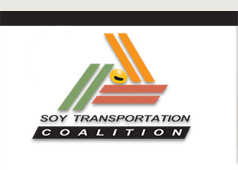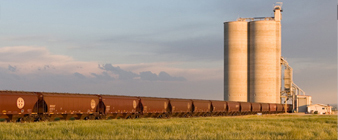 |
 |
|
| eNews • April 2014 | ||
| Promoting a Cost-Effective, Reliable and Competitive Transportation System |
||
 Sen. Boxer: Delay award until WRDA bill succeeds
Sen. Boxer: Delay award until WRDA bill succeeds
Sen. Barbara Boxer and Rep. Bill Shuster, the lead congressional negotiators on legislation to reauthorize investment in the nation's navigation and flood control systems, decided to defer accepting their "Port Person of the Year" awards from the American Association of Port Authorities until the new version of the Water Resources Development Act is passed.
Championed by the maritime sector, the WRDA bill passed the Senate 84-13 last spring and swept through the House 417-3 in the fall at a time when most other legislative activity was stuck in political gridlock. But hopes of swift final passage were dashed by a host of thorny disagreements, many having more to do with institutional differences between the two chambers of Congress than party affiliation.
During brief appearances at the AAPA's spring conference in Washington, the two lawmakers insisted, as they have for the past month, that many of the issues have been ironed out and a final agreement is within reach in the coming weeks.
Boxer, who chairs the Senate Environment and Public Works Committee and is leading negotiations for the Senate in the conference committee to form a unified bill, told a reporter as she departed the conference that there are five to six issues remaining to be resolved, down from about 20 at the start of the conference process.
One of the big sticking points is whether Congress or the executive branch should have final say on which harbor-deepening projects get funded. Shuster and many House colleagues insist that Congress shouldn't cede its constitutional authority to make spending decisions by allowing the Army Corps of Engineers to make the call on project approvals. The Senate version of the bill would allow the Army Corps to move ahead on projects after a final feasibility study from the Chief of Engineers if there is a local sponsor willing to front the cost before Congress appropriates funds.
Other differences, according to maritime industry officials, include whether to federalize the entire dam portion of the Olmstead Lock and Dam project that is swallowing a disproportionate share of inland waterway user fees that could be used for other projects; the Morganza project near the Gulf; a Water Infrastructure Bank; and member requests for contingent project authorization when Congress is operating under an earmark ban.
Boxer and Shuster, chairman of the House Transportation and Infrastructure Committee, were being honored for their work to reform federal water resources development legislation, which is considered critical for the efficient movement of cargo vessels in and out of seaports as well as on the vast inland waterway system.
"I'm going to ask you to hold onto this award until the conference is done because I'm a little superstitious about being thanked before we've done the job," Boxer told the gathering of port directors and other industry representatives.
"The day after we get out of the conference I will call you and we will celebrate," she said.
Shuster said he would wait to accept his award, too.
"I'll put this back in the vault," AAPA Chairman Tay Yoshitani, the Port of Seattle director, said.
It has been seven years since the last WRDA bill was enacted.
Both pieces of current legislation would streamline the process for reviewing projects, initiate a few studies of new dredging projects, authorize appropriators to fund about $8.2 billion in port and waterway projects, and allocate more user fees from the Harbor Maintenance Trust Fund towards maintenance dredging.
Slightly more than half of the $1.8 billion in annual HMT revenues are appropriated for their intended purpose.
The House WRRDA bill (the extra "R" is for "Reform") attempts to maintain deficit neutrality by deauthorizing moribund projects on the books equal in value to newly authorized projects. It also expands the allowable use of HMT funds beyond maintaining the main channel so that West Coast ports, which tend to be naturally deep and need limited ongoing maintenance, can reap some benefit from the substantial donations made by shippers in their region. Another provision would allow ports and local authorities that aren't listed in a WRDA bill for deepening to advance money themselves for pre-engineering or other work once a Chief's report is completed and subsequently apply for a credit on the local share of the project or reimbursement for those costs.
Port Everglades, which has had its request to deepen its harbor from 42 feet to 50 feet under review for 18 years, is the primary backer of the provision. The Army Corps is close to finishing its feasibility study, but it may not be completed before a final vote on the WRDA bill. That would push authorization out at least two more years.
Ports have long had the ability to self-fund dredging, but the provision for the first time allows ports to receive a credit or reimbursement if the project is ultimately approved by Congress. Everglades Port Director Steve Cernak said the language allows ports to make a business decision based on the likelihood of congressional authorization and the potential lost business opportunity from further delays.
Shuster said that making permanent a host of policy reforms means that future authorization bills can simply focus on authorizing Chief's reports for new harbor-deepening projects.
Industry officials close to the process have publicly and privately said in the past two weeks that lawmakers are expected to agree on a joint WRDA bill by the end of April and that floor votes are likely in May.
Source: American Shipper
Soy Transportation Coalition |
|
